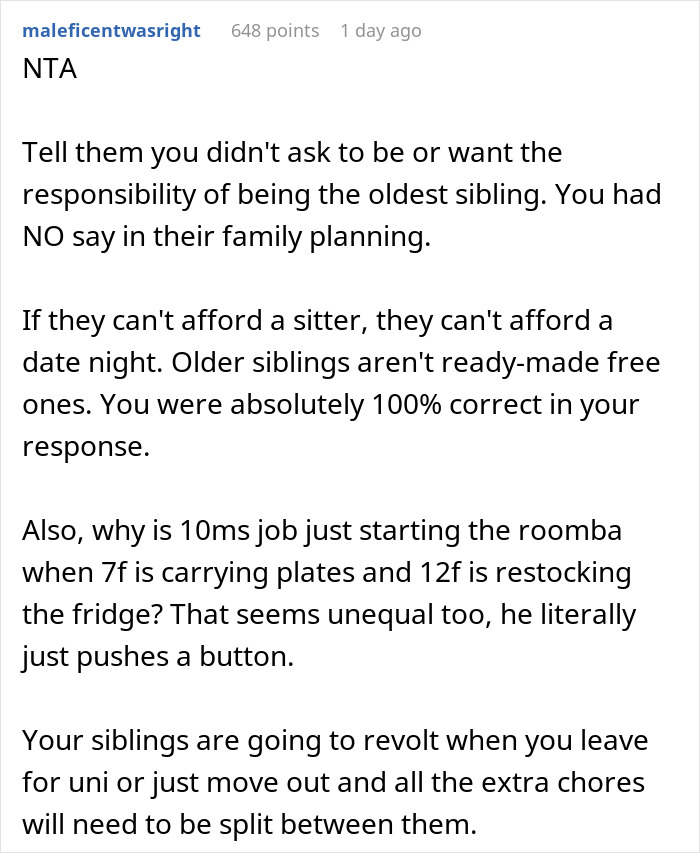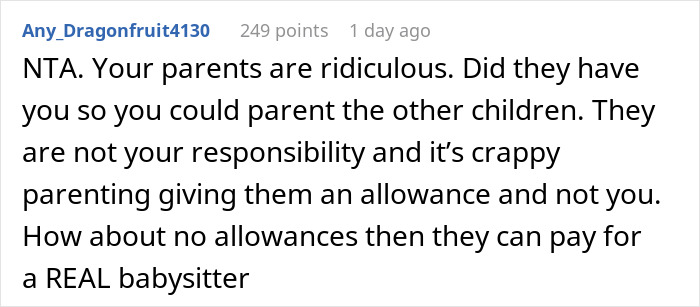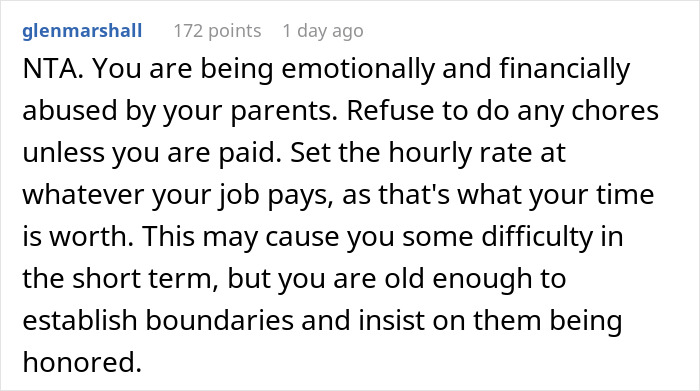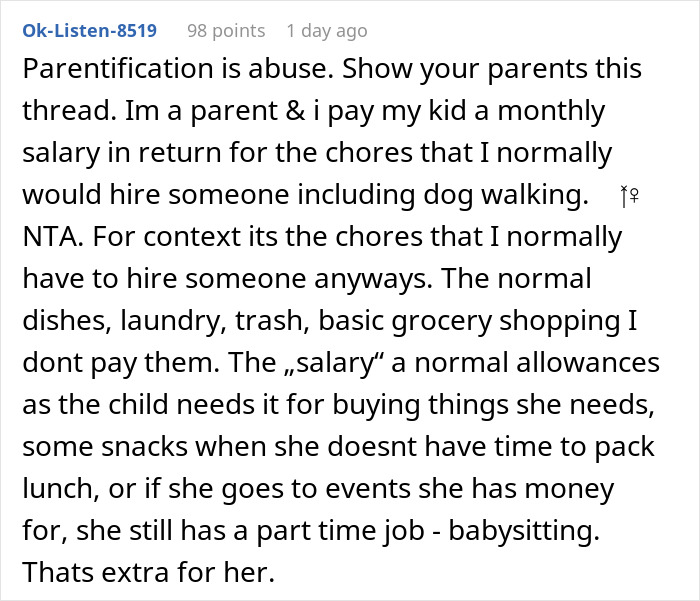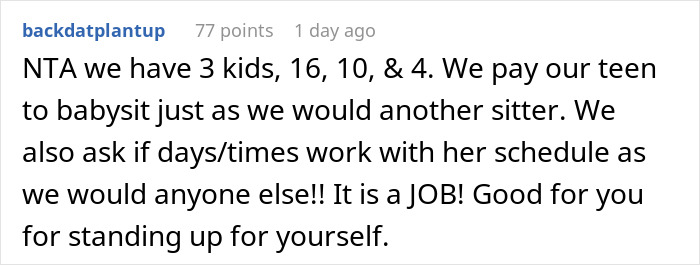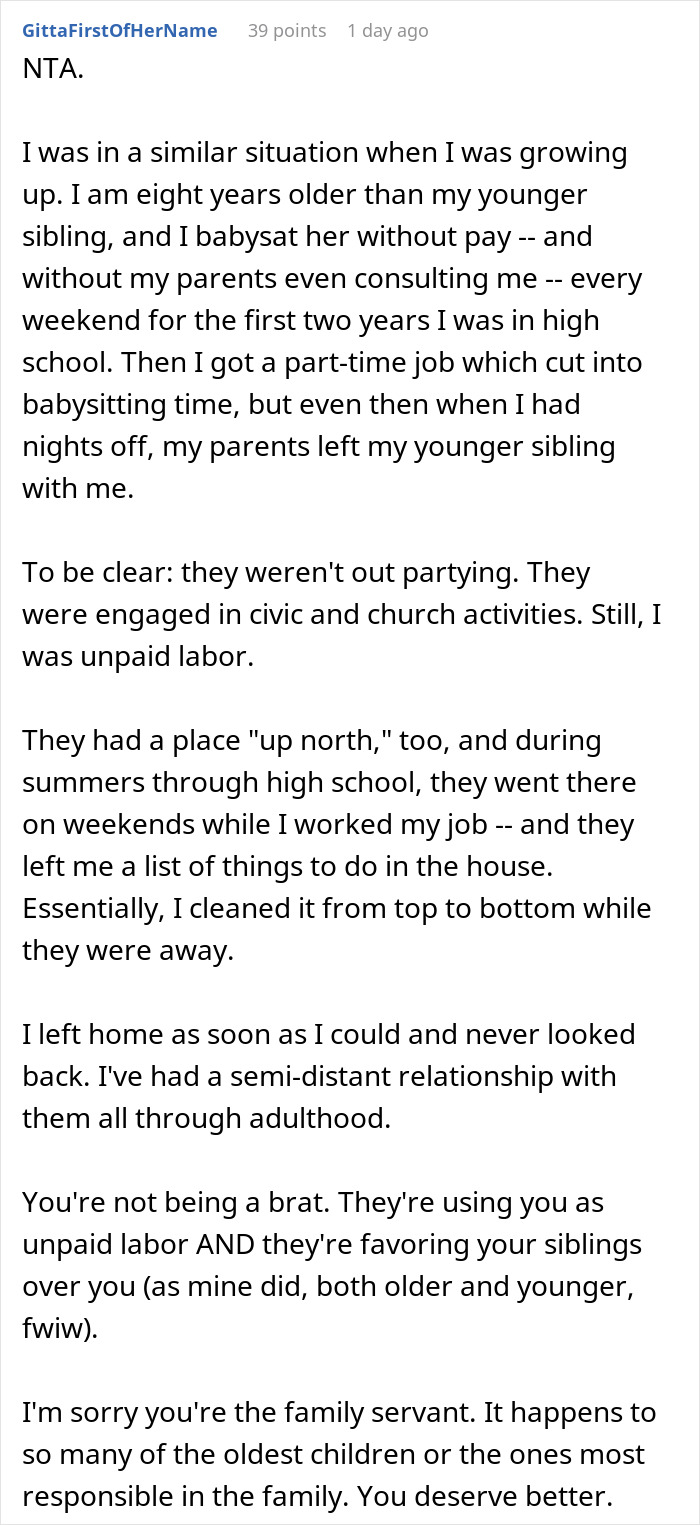Whether you should pay your children to do the housework is a big question for parents. Learning to do chores early on is very useful for adult life later, but it can lead to a lot of frustration. If the chores aren’t divided up justly or the rewards are handed out unfairly, someone will eventually feel left out.
One anonymous teenager went viral on the AITA online group after sharing how he pushed back against his parents not paying him for chores. Frustrated, he got a real job instead and now refuses to babysit his siblings for free, which made his parents mad. Now, the teen is asking the internet for advice. Read on for the story and the tips others gave him. Bored Panda has reached out to the author for further comment.
Some parents pay their kids to do housework while others expect them to pitch in regardless of any rewards

Image credits: elmizaismagilova / envato (not the actual photo)
A working teenager asked for advice online after deciding not to do chores anymore without some sort of compensation
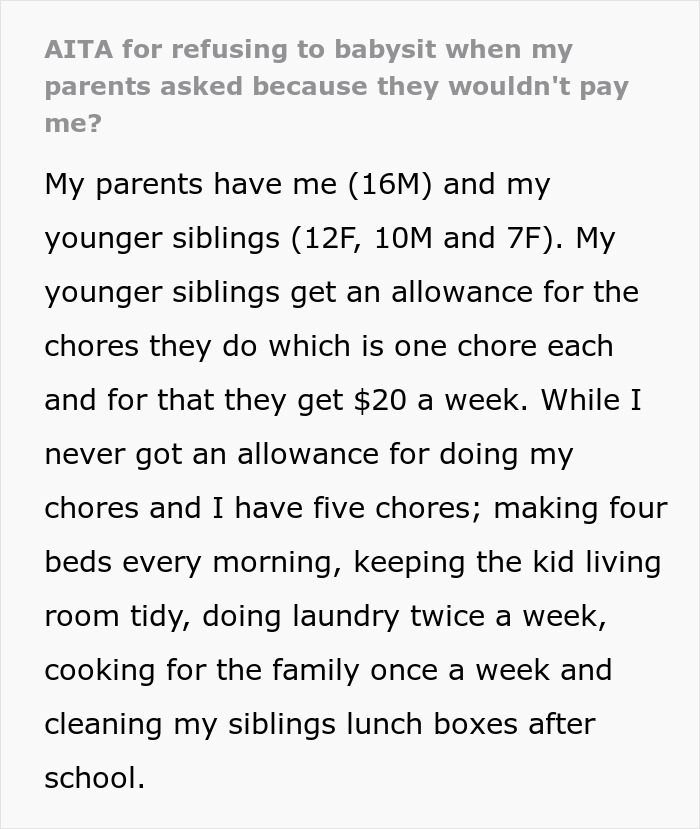
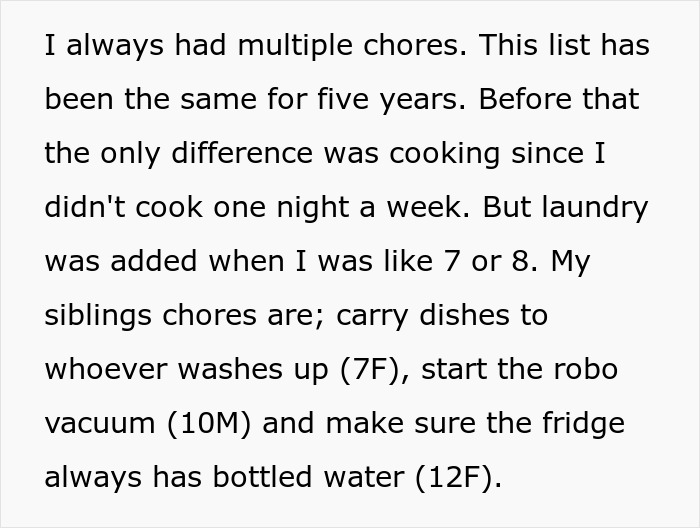

Image credits: romanchoknadii / envato (not the actual photo)
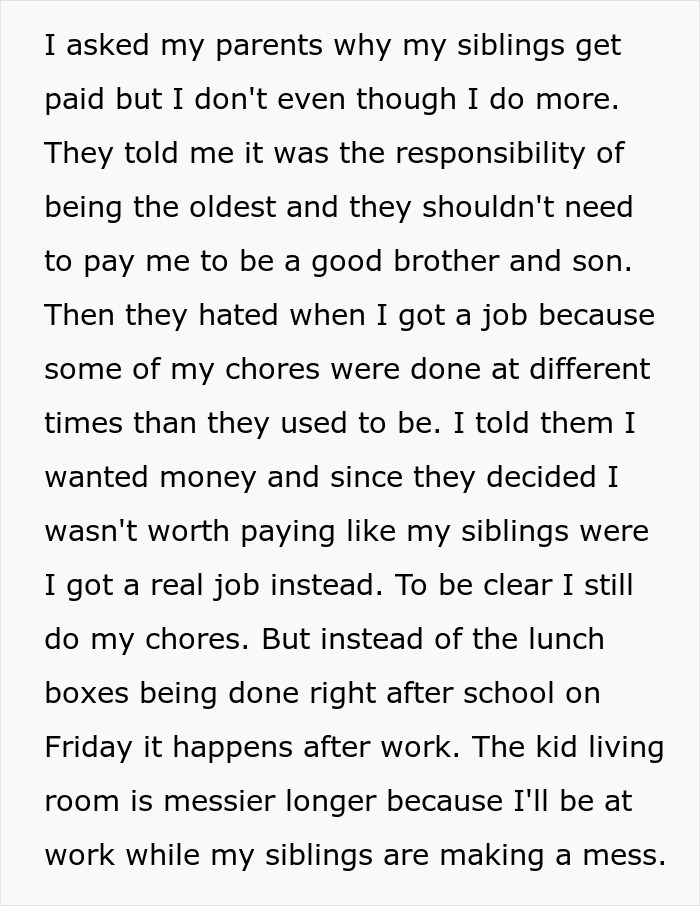

Image credits: Free_Chemistry_3708
It can feel incredibly frustrating to know that you’re being mistreated while others are being rewarded for their efforts
It’s up to the parents to decide whether to pay their kids to do the chores or to help them see it more as their duty. There are pros and cons to either approach. It’s helpful if your kids understand the need for chores and showing support, instead of just doing things for a reward. However, whatever you choose, you need to be consistent in your ruling.
If you openly treat your children unfairly, then it should come as no surprise when they eventually rebel against your rules. For instance, if you decide to pay your munchkins to pitch in with the housework, you need to pay all of them. Similarly, if you reward them in some other way (more computer time, amusement park trips, ice cream, etc.), you can’t exclude one or two of them.
It’s not just about the exact amount of money you’re being paid, it’s about the fact that you’re (not) paid at all. Being left out stings. Think of it this way: if the family were a company, it would obviously be unfair if some employees were paid for doing tasks while others were expected to help out for free. Rules need to be fair and just if you expect everyone to abide by them.
Naturally, nobody is going to pay you for washing the dishes, taking out the trash, vacuuming, and cooking for yourself when you’re all grown up and living by yourself. So, for some parents, it also makes sense that their children learn the value of doing housework for their own sake, not just for cash.
Other parents see things slightly differently. They feel that kids need to be incentivized in order to contribute to the family. A reward—even a small one—is often a good motivator to get anyone to do, well, pretty much anything. It’s how the job industry functions after all. So, from that perspective, it might not be the worst thing in the world to teach children that their labor and efforts have value.
Getting into the habit of doing chores from an early age is beneficial for kids, regardless of payment
According to ‘Your Teen’ magazine, there are lots of benefits of chores for teenagers. For one, doing the housework consistently helps build a strong work ethic and can boost their confidence, as well as their self-esteem.
In the meantime, doing chores teaches teens how to manage their time, prioritize tasks, improve their teamwork, be more empathetic, and prepare for the future.
Meanwhile, teens who actually get paid for their efforts improve their financial literacy and know the value of hard work. They can then learn to save money, make a budget, and spend their hard-earned cash purposefully.
On the flip side, ‘Happily Family’ notes that rewards may not be all that effective at improving the quality of people’s work or their learning. They’re potentially a temporary measure to get someone to comply with what you want.
Furthermore, the fact is that human beings are remarkably capable of adapting to their circumstances, whether good or bad. Just like employees working at a company, kids would get used to their ‘wages’ fairly quickly and want more money for their efforts in the near future. And let’s not be naive, some things (e.g., reading) are worth doing and necessary even if they’re not compensated well.
But what’s your take on all of this, dear Pandas? Do you think that the teenager is doing the right thing by refusing to do any housework unless he gets paid like his siblings? Why do you think his parents weren’t willing to reward him just like their other kids?
Were you ever paid for doing chores? Would you pay your children to help with the housework or do you expect them to help regardless? Let us know what you think in the comments section.
Many readers were very supportive of the way the teen handled things. Meanwhile, the author shared a bit more context in the comments

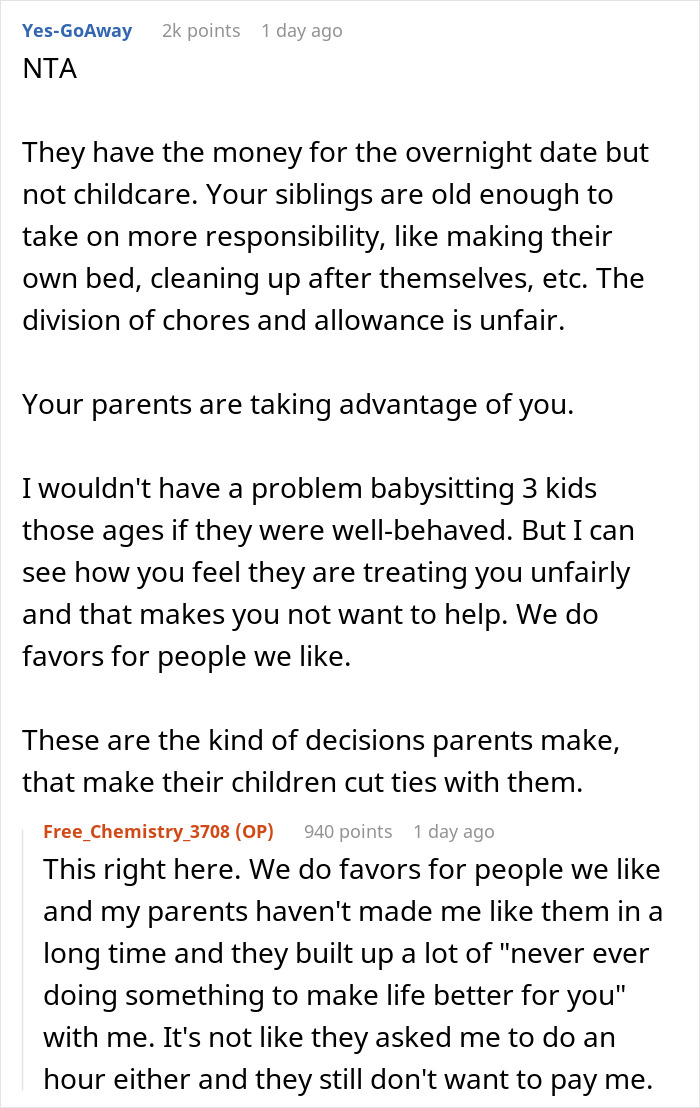
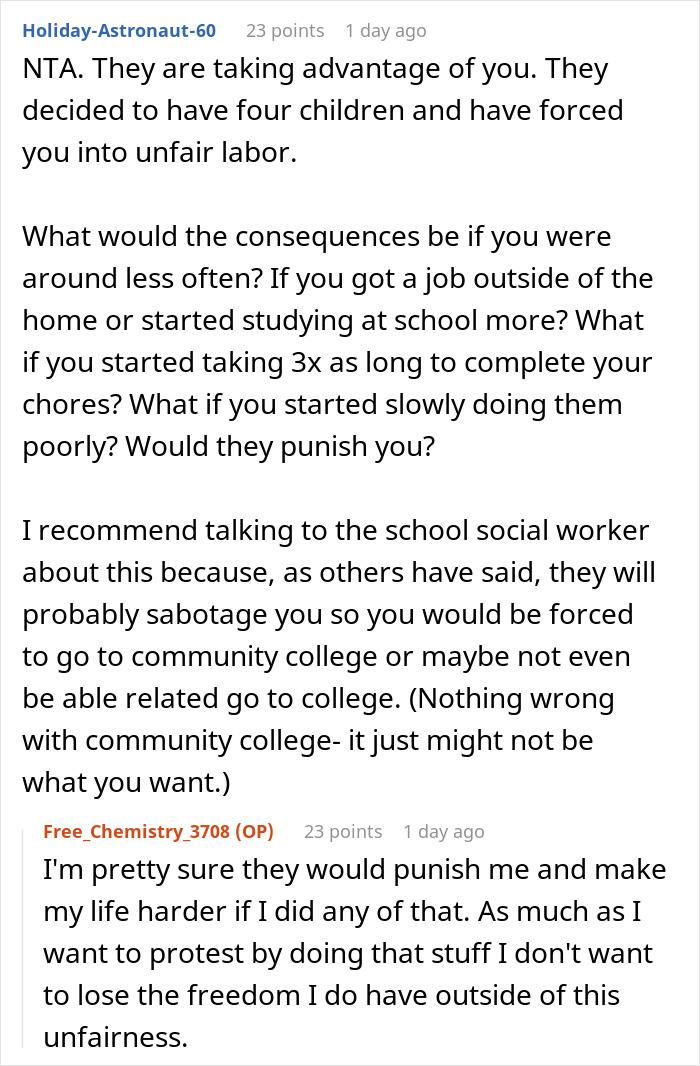


Here’s what some other readers had to say about the unusual situation at home
